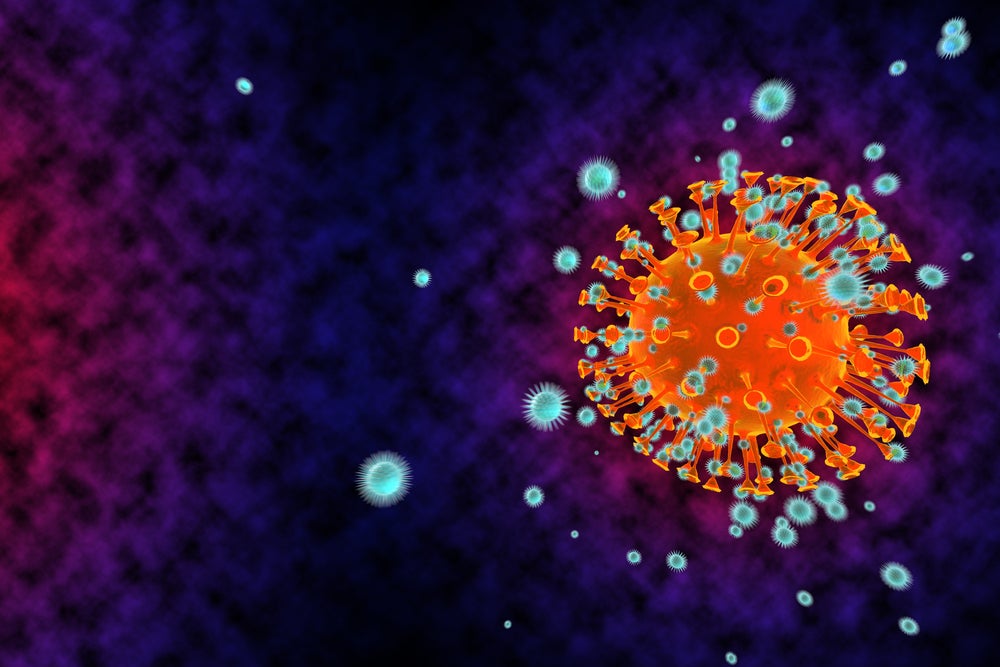
California-based Selva Therapeutics has closed a Series A round with $3m raised. The funding for the round came from private investors, including Board of Directors member Kenneth Kelley; other participants of the round were not disclosed.
The proceeds of the Series A will be used to advance Selva’s lead candidate, SLV213, into clinical trials for Covid-19.

Discover B2B Marketing That Performs
Combine business intelligence and editorial excellence to reach engaged professionals across 36 leading media platforms.
The company’s CEO Ted Daley explains that it is currently completing pre-clinical studies of SLV213, but this funding will allow Selva to “open an IND [investigational new drug] application, and start manufacturing of the clinical drug supply” before processing into a Phase I clinical in the third quarter of this year.
Selva, SLV213 and Covid-19
Since licensing SLV213 from University of California San Diego (UCSD), Selva has been developing the drug as an anti-parasitic for Chagas disease. This is because this parasitic disease is a growing threat to the US; although “Chagas disease is endemic to South and Central America, it is staring to expand into the US”, explains Daley.
However, in March, Selva’s academic collaborator at UC San Diego, Dr James McKerrow, “shared data [on SLV213] that he and some colleagues have generated showing very high potency against SARS CoV-2 [the virus which causes Covid-19] in in vitro studies”. As a result, Daley notes, Selva shifted its focus to Covid-19 to meet this urgent priority in global public health.
The reason SLV213 is effective in both Chagas disease and Covid-19 – as well as other coronaviruses, and Nipah and Ebola – is due to its novel mechanism of action. “SLV213 is a small molecule cysteine protease inhibitor”, which particularly targets one class of human proteases, called cathepsins. These “play a role in cleaving the spike protein, which enables SARS-CoV-2 virus to enter the human cell where it reproduces”, explains Daley. Therefore, by inhibiting human cathepsins, SLV213 can prevent viral entry and reproduction, which ultimately causes Covid-19.

US Tariffs are shifting - will you react or anticipate?
Don’t let policy changes catch you off guard. Stay proactive with real-time data and expert analysis.
By GlobalDataThis viral entry mechanism is shared by other viruses and makes SLV213 a broad-spectrum antiviral. The mechanism of acting on human, rather than viral, proteases means SLV213 also differs from many of other antiviral drugs being developed against Covid-19. These are known as direct-acting antivirals as they focus on inhibiting viral proteins and proteases – examples include remdesivir and sofosbuvir.
Daley argues that a broad-spectrum antiviral that acts on a host protein could mean SLV213 is “less susceptible to viral resistance” than antivirals targeting the virus. Daley explains that “it would not be to the virus’s benefit to mutate in a way that it no longer engages the cathepsin proteins” to allow entry into the cell. Therefore, “as the SARS CoV-2 virus mutates, it’s reasonable to expect that this particular mechanism and [cell entry] pathway will remain in place”.
Its novel mechanism also means Selva is planning to study SLV213 in moderately symptomatic or asymptomatic patients initially. This an important patient group because, Daley notes, “as this pandemic progresses and more and more people are being tested and diagnosed at earlier stages of the disease, there is a need for treatments for these patients”, primarily to slow or inhibit the progression of the infection and disease. It is also possible that SLV213 could have potential as a prophylactic treatment for Covid-19.
The need for combination therapies for Covid-19
Daley is very clear that both broad spectrum and direct acting antivirals have a role to play in fighting Covid-19.
“For a lot of viral diseases, there’s often not just one single treatment for all patients. Often there is more of a cocktail approach to treating viral diseases”, notes Daley. Human immunodeficiency virus is a notable example of this. “We think that is likely to be the case for SARS-CoV-2 as well”.
Selva believes that SLV213 would be a good candidate to combine with direct acting antivirals because “ours is the only cysteine protease inhibitor being advanced into clinical development for Covid-19”. However, direct acting antivirals would enable the inhibiting of virus replication itself which is important for “viruses that do make it into the cell.”
“There’s going to be a need for cocktail of treatments to address this disease while we’re waiting for widespread availability and administration of the vaccine. Our drug has a chance to be a really critical part of that treatment regimen”, concludes Daley.




